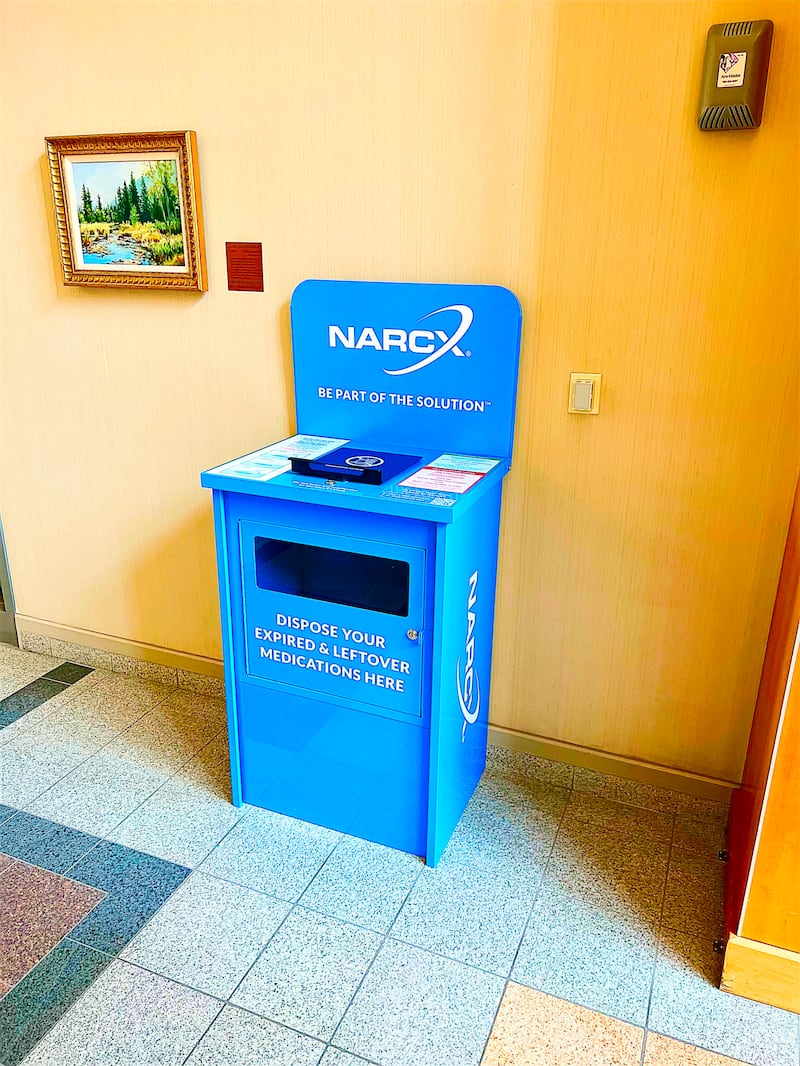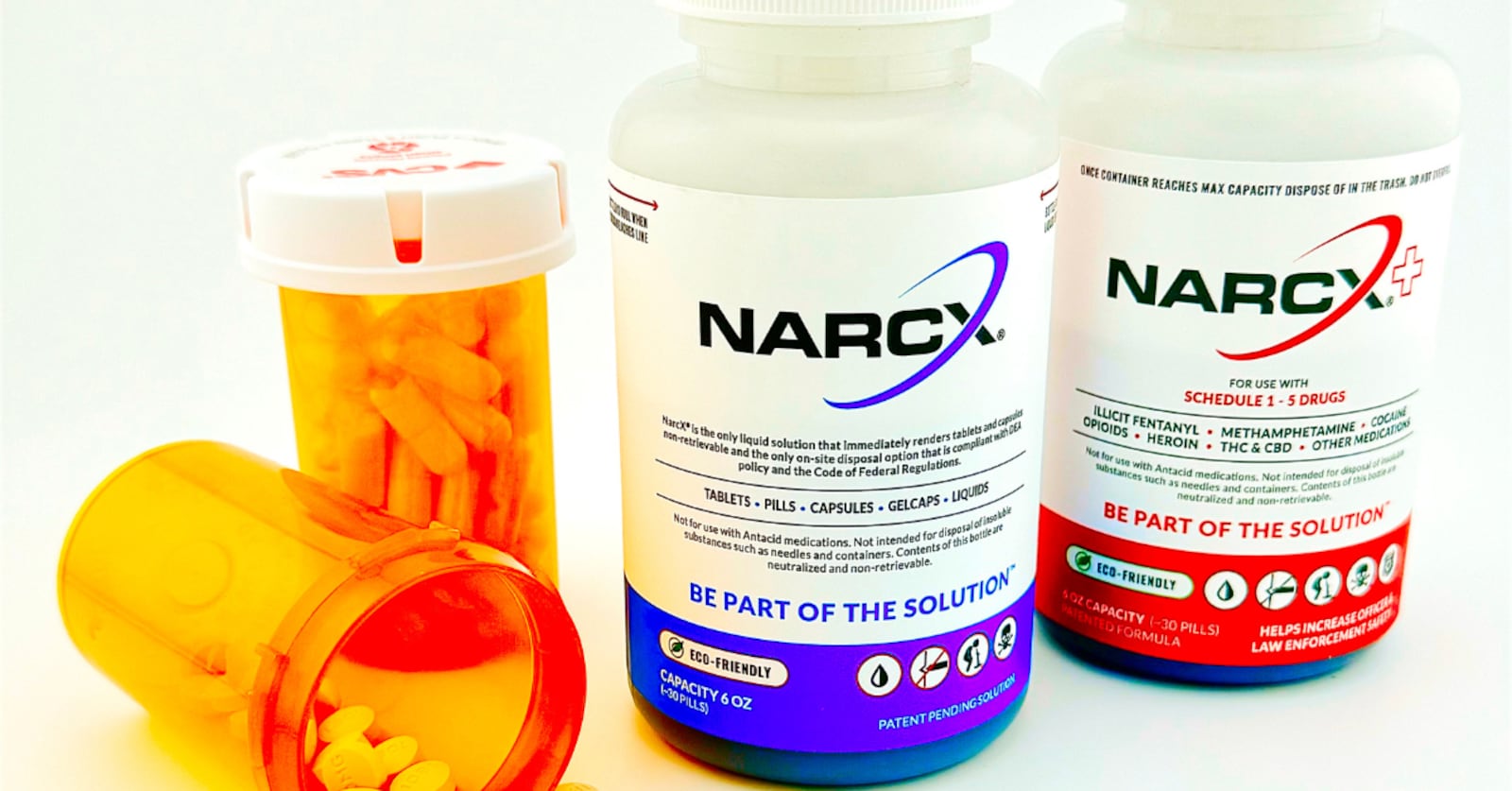This story appears in the May issue of Utah Business. Subscribe.
Drug disposal is an issue on many levels, from patients with excess prescription medication sitting in their medicine cabinets to law enforcement confiscating millions of dollars worth of drugs. These drugs and medications are often at risk for diversion — the illegal distribution or abuse of prescription medication. In the ongoing battle against the opioid epidemic and drug abuse in the United States, NarcX, a Utah-based startup, is pioneering a groundbreaking solution that addresses a critical aspect of the crisis: the safe disposal of excess and illicit drugs.
Eight years ago, Utah entrepreneurs Jordan Erskine and Gavin Collier co-founded NarcX and began research and development for an easy-to-use product to help fight against drug diversion. Their solution, called NarcX+, scales from a 6 oz. bottle for individual use to a large disposal receptacle for communities.
NarcX products are proven to work on many Schedule I-V drugs. Once a drug interacts with the liquid, it’s rendered non-retrievable within minutes to hours, depending on the drug. This means the drug’s chemical condition is altered and destroyed in a way that is unusable for all purposes.
To tackle such a large and complicated problem, Erskine and Collier knew they had to create an elite team. Luckily, they recruited David Schiller, a recently retired Drug Enforcement Administration (DEA) agent, to join their team as a co-founder and CEO.
“I agreed to co-found and be the CEO of NarcX Solutions Inc. because I knew firsthand that, in 2017, over 160 people were dying every day throughout the United States due to an opioid overdose,” Schiller says. “Now, almost 300 people are dying every day. I knew that there was not a single company in the U.S. that could render opioids ‘non-retrievable’ onsite.”
After seeing the work Erskine and Collier had done and were proposing, Schiller joined the team and navigated them through four years of research and development and the complicated landscape of DEA requirements, patents and validations.

When the team started sending the solution to labs for testing, they were encouraged by the many positive results. Recently, a third-party criminal lab validated the effectiveness of NarcX+ on illicit fentanyl, officially meeting all DEA standards.
“I think we always knew how big it could get, and we were always hopeful,” Erskine says. “But it was still a shock when we got the fentanyl validation. We’re the only company in the country right now with a validation like that.”
Since NarcX has been in business, NarcX products have destroyed millions of unwanted, unused or stockpiled pills. NarcX+ is the only independently validated solution for onsite destruction that renders drugs non-retrievable, destroying drugs using a sustainable solution that is safe for the environment. But Erskine notes the primary roadblock their company faces is challenging the status quo for drug disposal.
Most of the current drug disposal methods are costly and not DEA-compliant, but implementing innovations is a challenge in this industry. Nationally, DEA-registered reverse distributors are facing suspension for failing to account for more than a million doses of opioids. Earlier this year in Utah, law enforcement officers discovered a waste disposal worker who was diverting drugs from the landfill and distributing them in Sanpete County. Incineration is also a common option for drug disposal, but it’s expensive, creates air pollution and requires long periods of stockpiling. Erskine believes NarcX+ is the perfect upgrade for the drug disposal system.
NarcX is already partnered with law enforcement and city entities across Utah, but they aren’t stopping here. Erskine reports that, as of March 2024, their disposal receptacles are being used in seven states, and they are in talks with nine countries that are interested in their products.
As they move forward, NarcX leadership plans to scale their growth and focus on marketing and education efforts to demonstrate the value of their product for the state, nation and the world.

